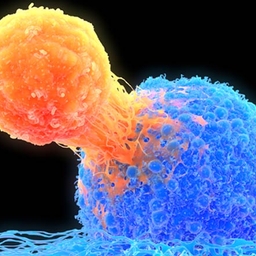Research News from CHOP


CHOP Researchers Selected for Bespoke Gene Therapy Consortium
CHOP researchers will develop gene therapies for multiple sulfatase deficiency, a devastating lysosomal storage disorder, with the goal of first-in-human trials.
CHOP Researchers Comprehensively Assess the Safety of Using Your Head in Youth Soccer
While a small number of relatively low impact soccer headers did not have detrimental effects, teen soccer players should still be trained to head the ball safely
Children’s Hospital of Philadelphia Receives Multi-Million Dollar Gift from Topolewski Family to Advance Pediatric Heart Valve Research and Establish Endowed Chair in Cardiology
Children’s Hospital of Philadelphia (CHOP) announced that it has received a multi-million dollar gift from the Topolewski family, longstanding supporters of the Cardiac Center at CHOP, to establish the Topolewski Pediatric Heart Valve Center.

New Computational Tool Identifies Novel Targets for Cancer Immunotherapy
CHOP and UCLA researchers have created a tool that can discover tumor antigens derived from alternative RNA splicing, expanding the pool of cancer immunotherapy targets.

New Study Shows Peanut Patch Effective in Young Toddlers
A new study involving CHOP researchers found that daily use of a “peanut patch” for one year was effective in desensitizing a majority of peanut-allergic toddlers.
Children’s Hospital of Philadelphia, Princeton Researchers Identify Novel Genetic Disorder
The disorder was identified in 21 patients with neurodevelopmental and craniofacial symptoms; causal gene may be a valuable therapeutic target.

Study Finds Gun Deaths More Likely in Small Towns than Big Cities
A new study has found that, contrary to popular belief, firearm deaths in the U.S. are statistically more likely in small towns rather than big cities.
Two CHOP Studies Find Role for ALT in Treatment-Resistant CNS Tumors
Two recent papers from CHOP cancer researchers have advanced the understanding of treatment-resistant pediatric central nervous system tumors.
Researchers Find Earlier Intervention Leads to Greater Improvements In Young Children on The Autism Spectrum
Toddlers who started more intense individualized intervention had better language and social communication skills than children who started intervention later.
CHOP-led Study Shows Leadless Pacemakers Likely Safe for Children with Irregular Heartbeats
Study provides the first data on leadless pacemakers in a pediatric population in a real-world setting.